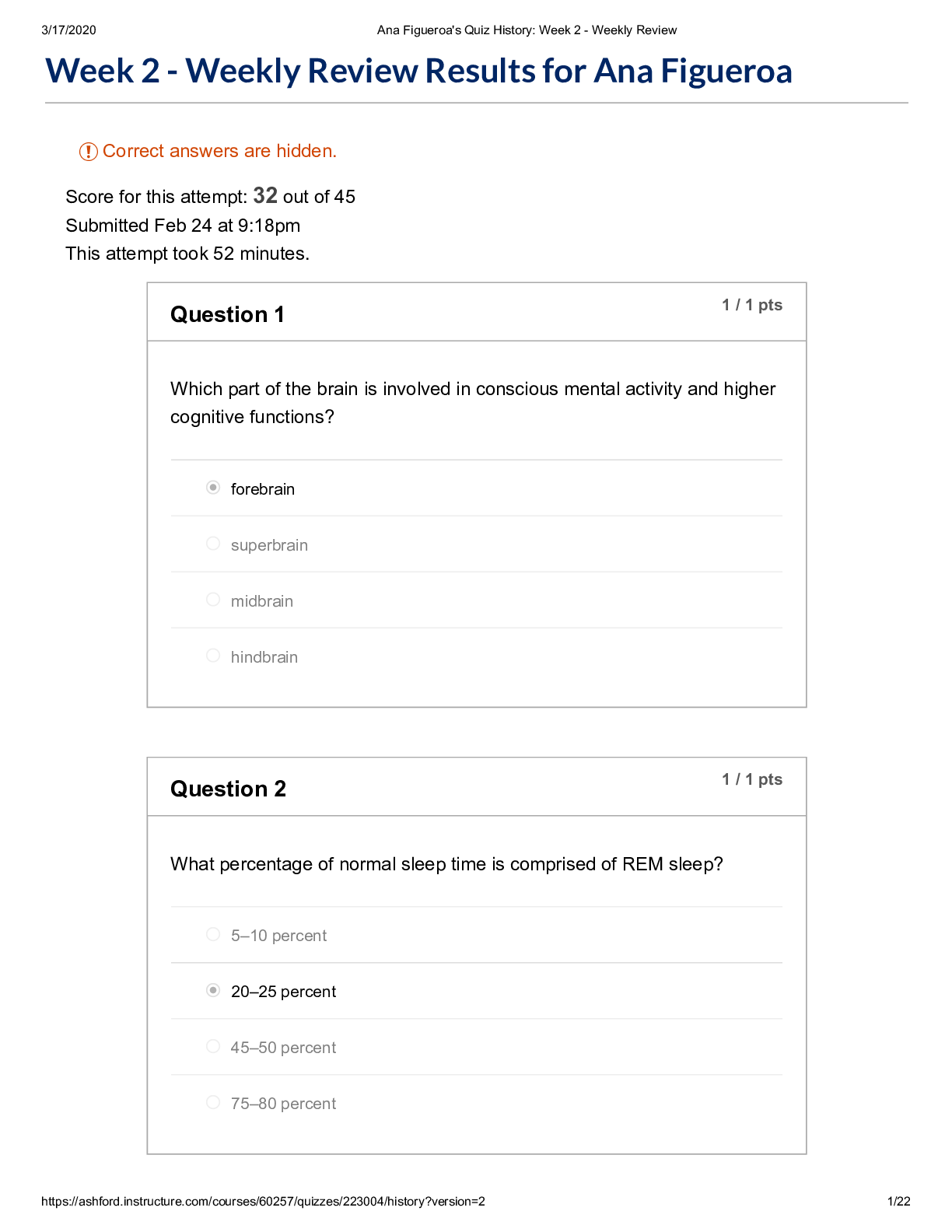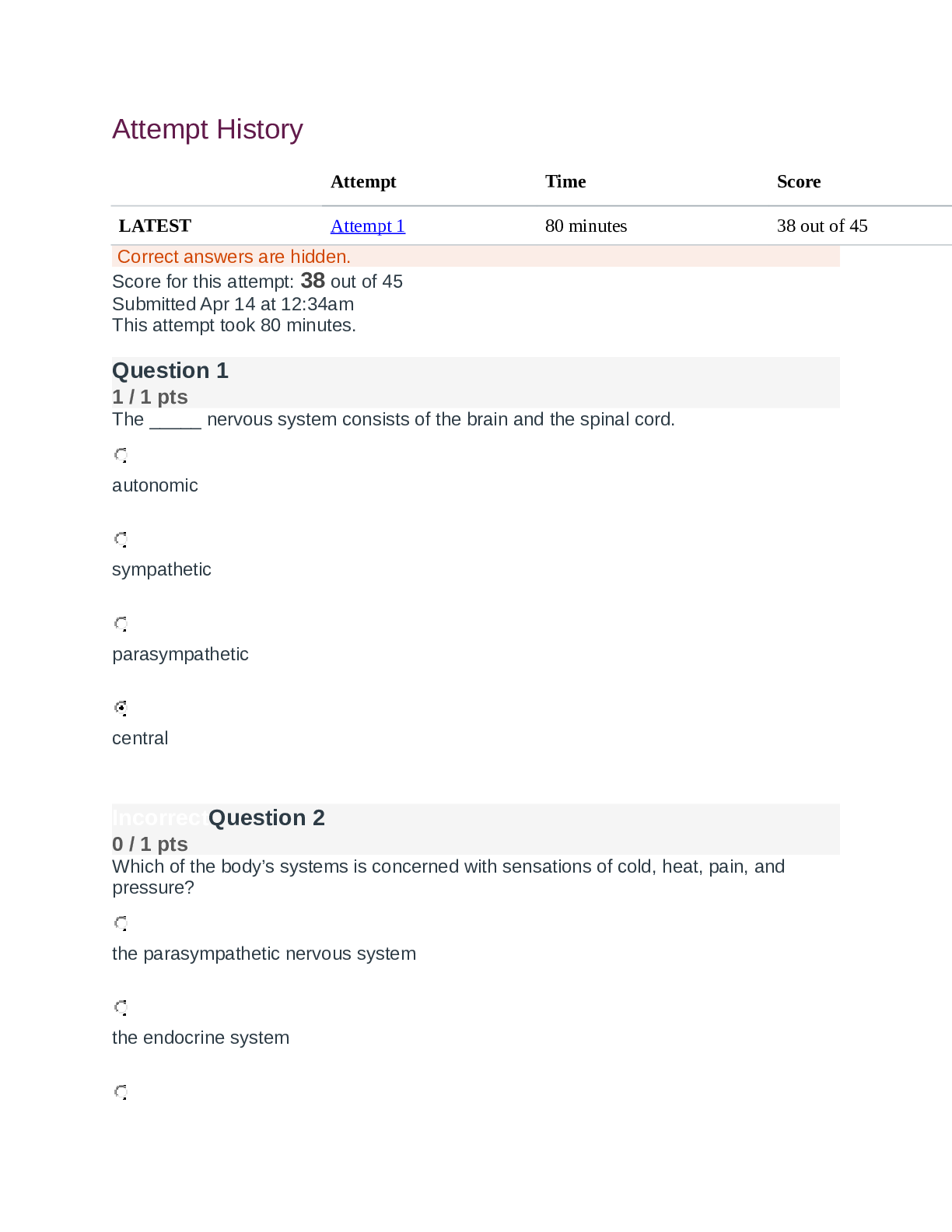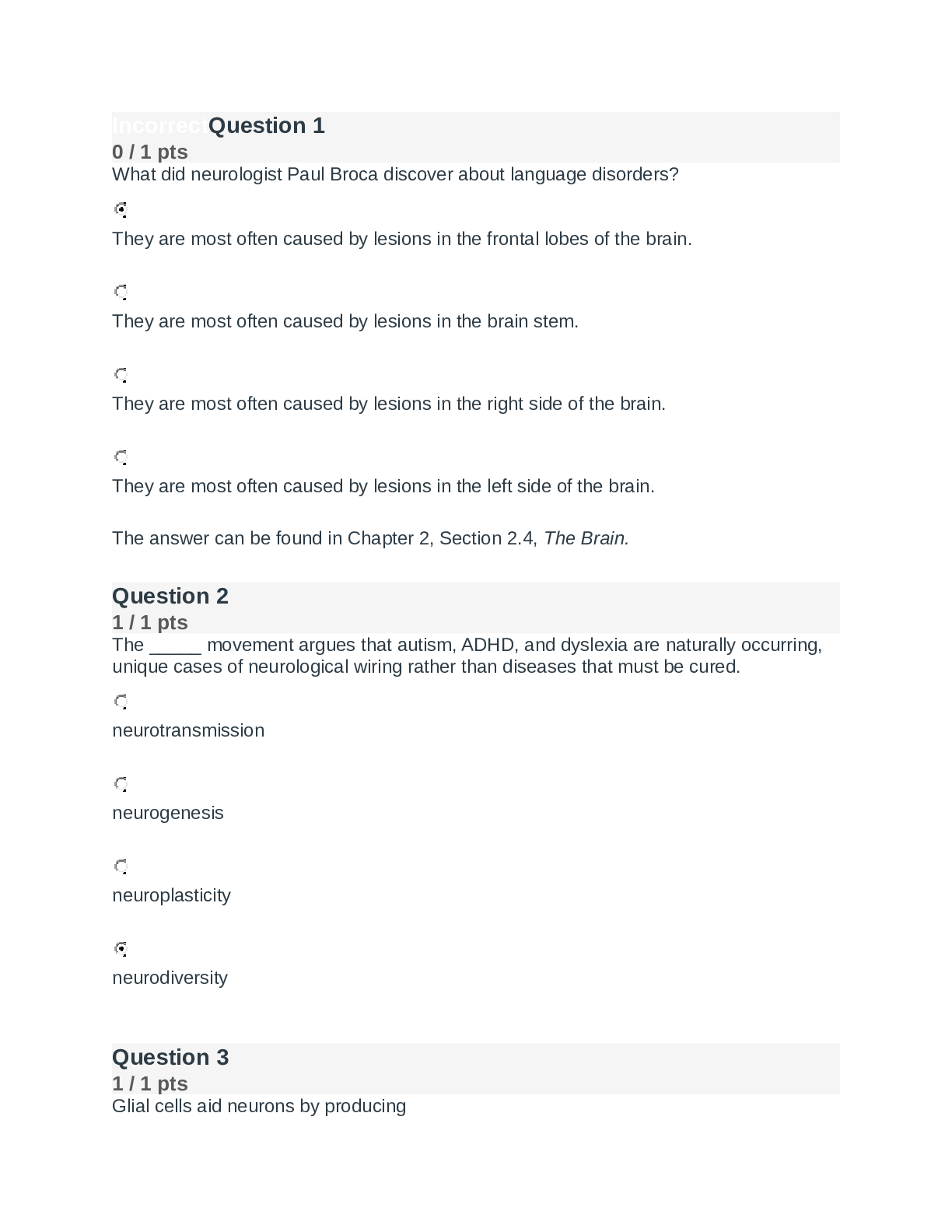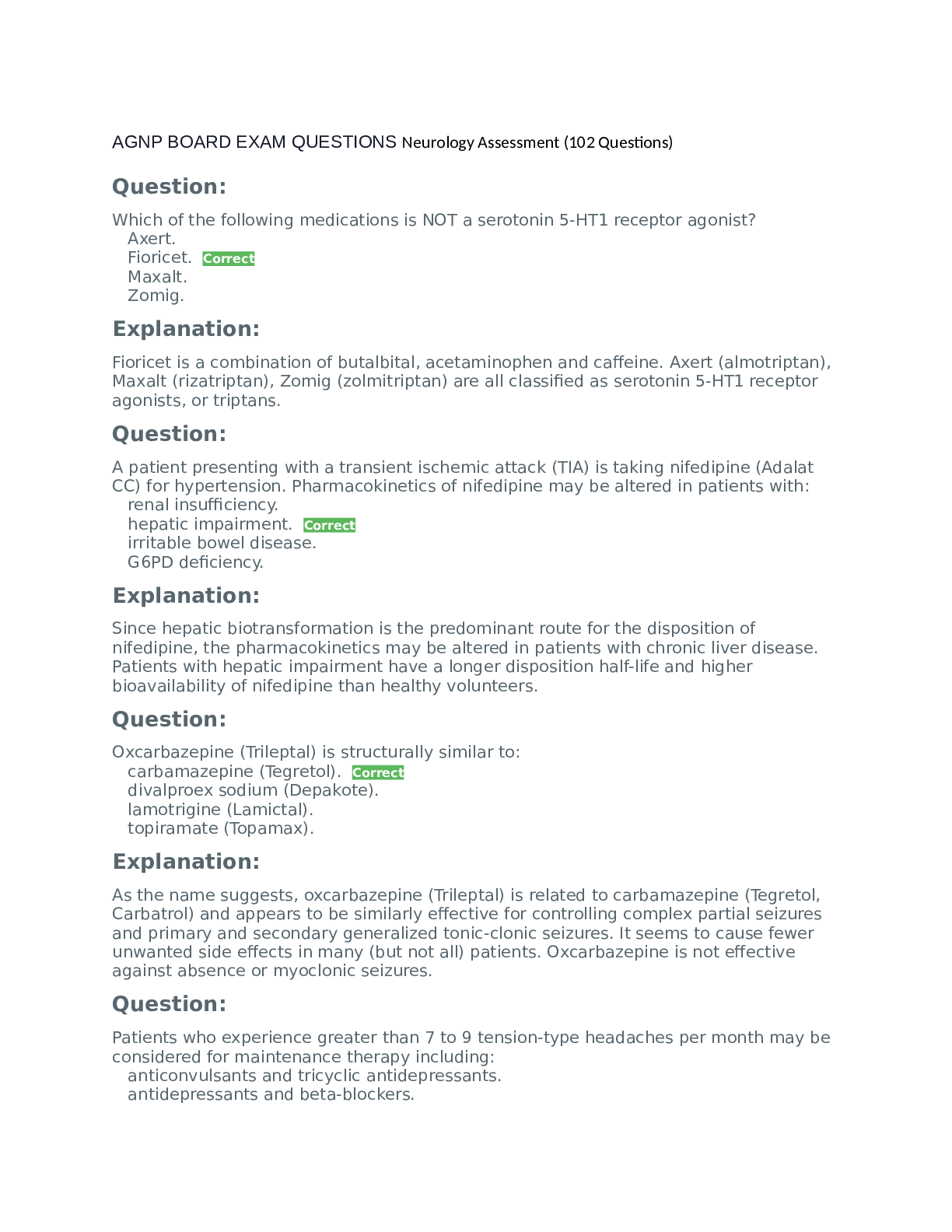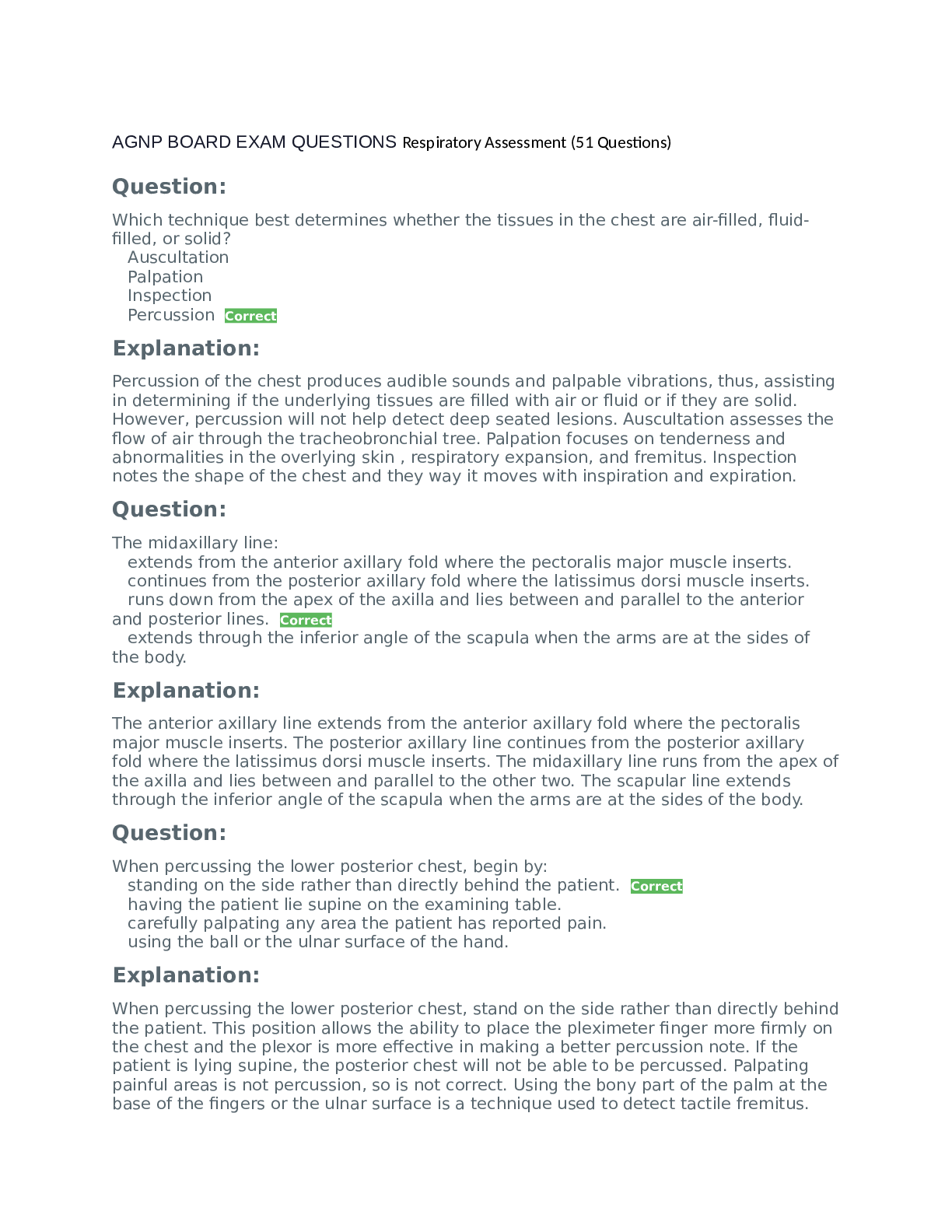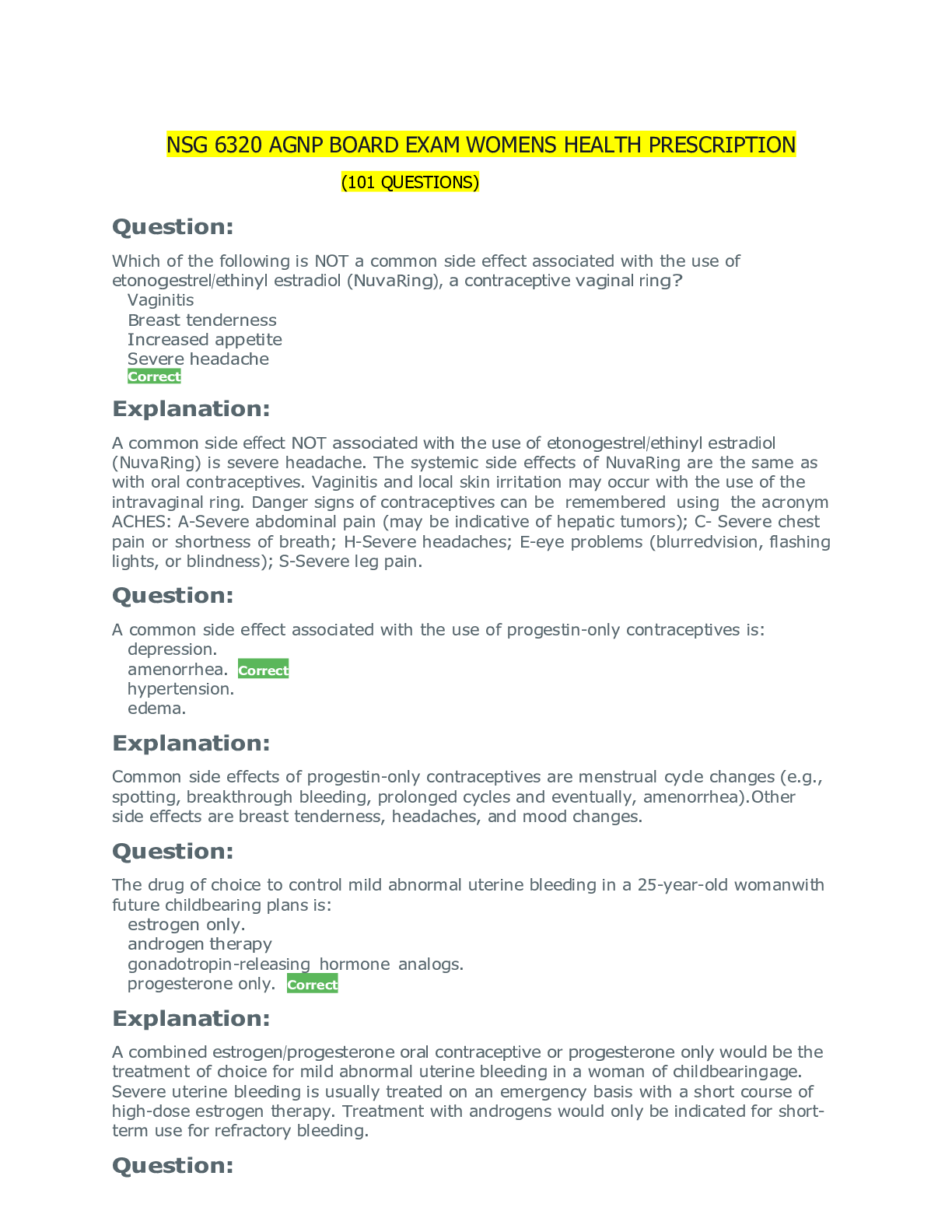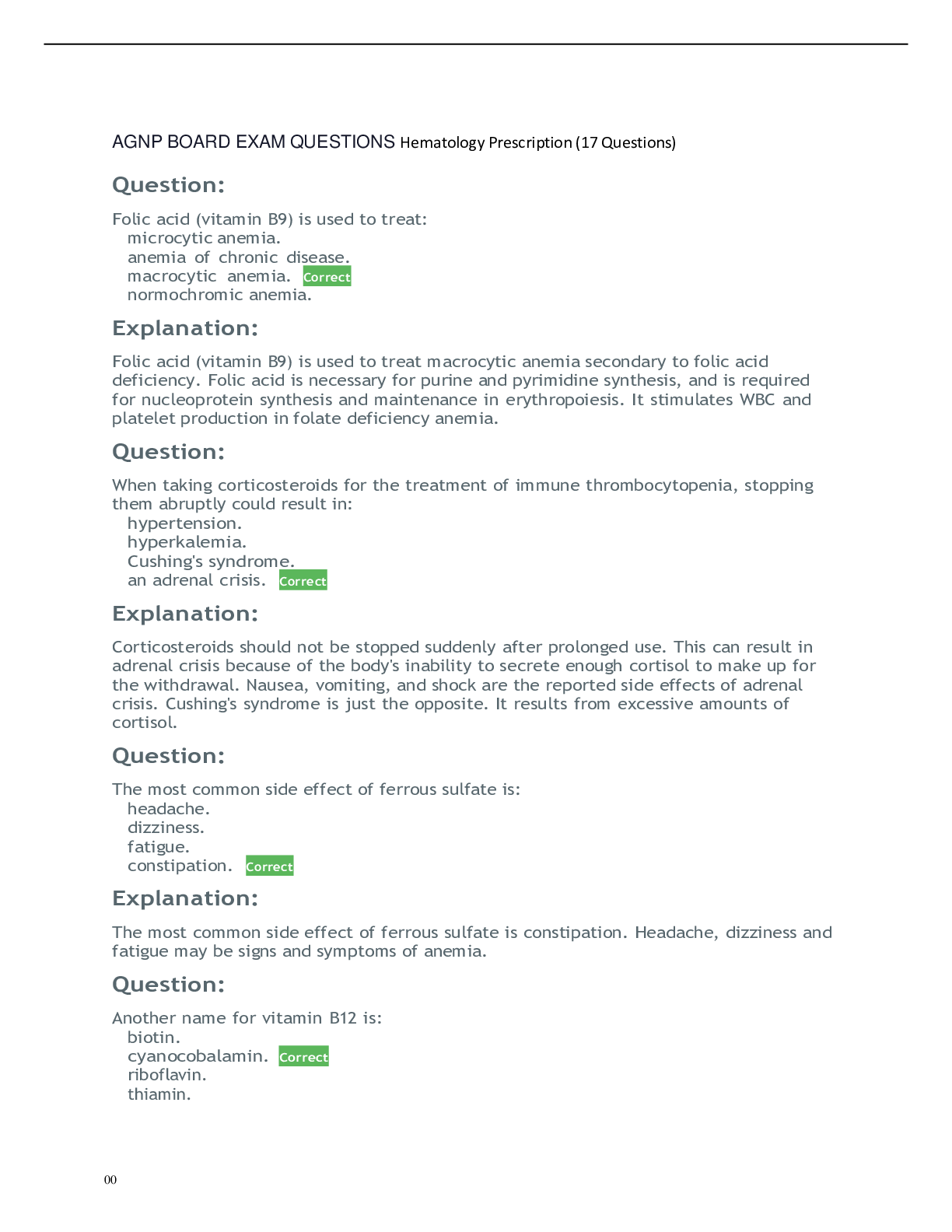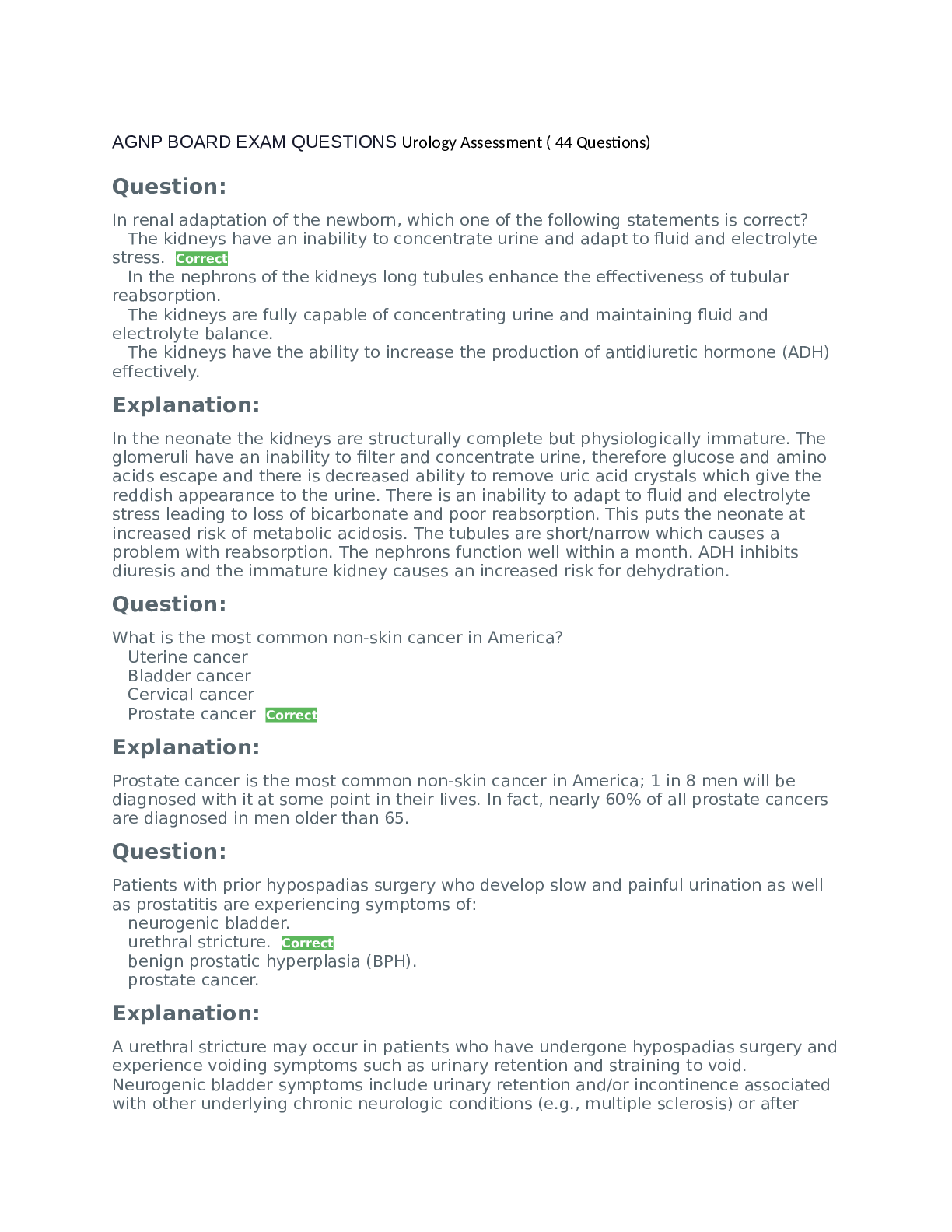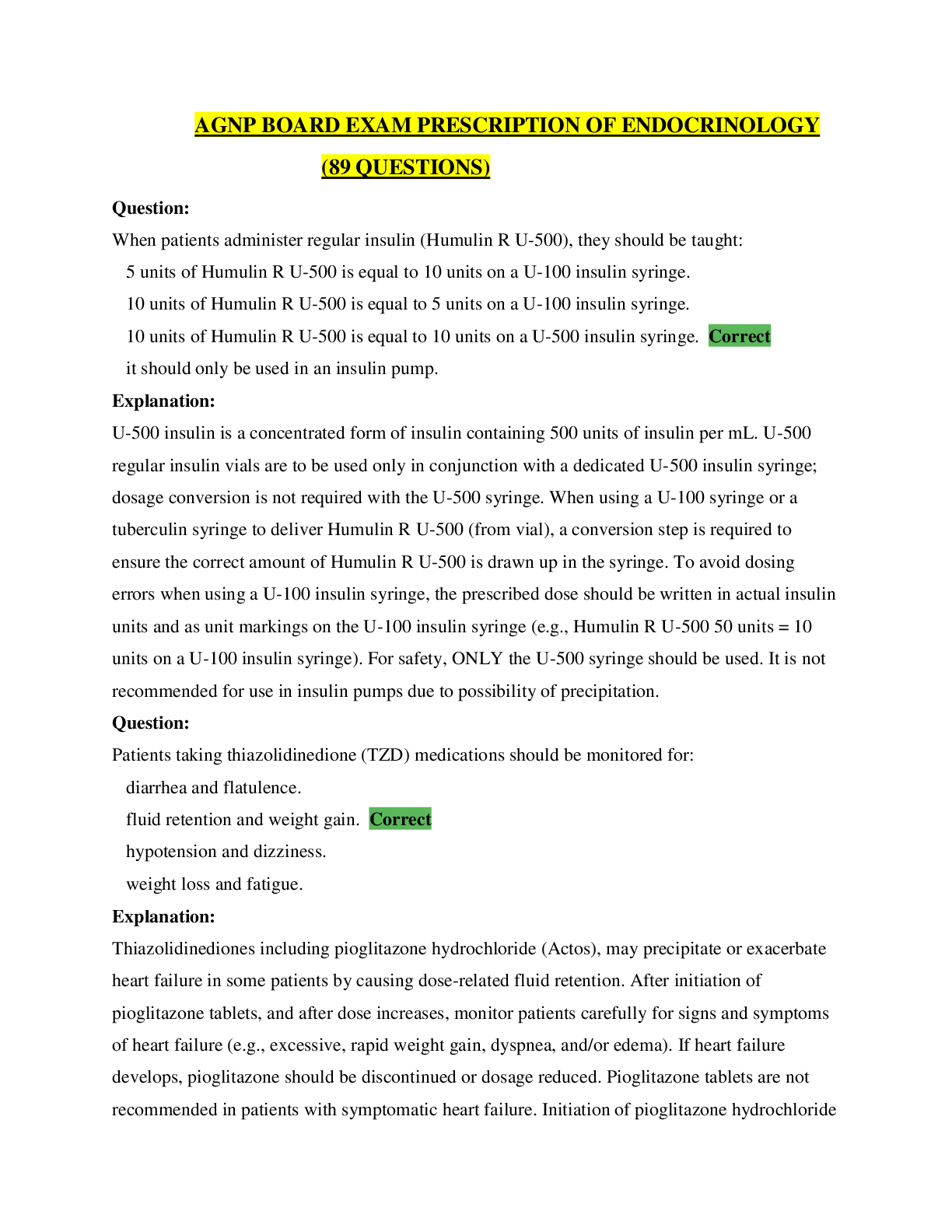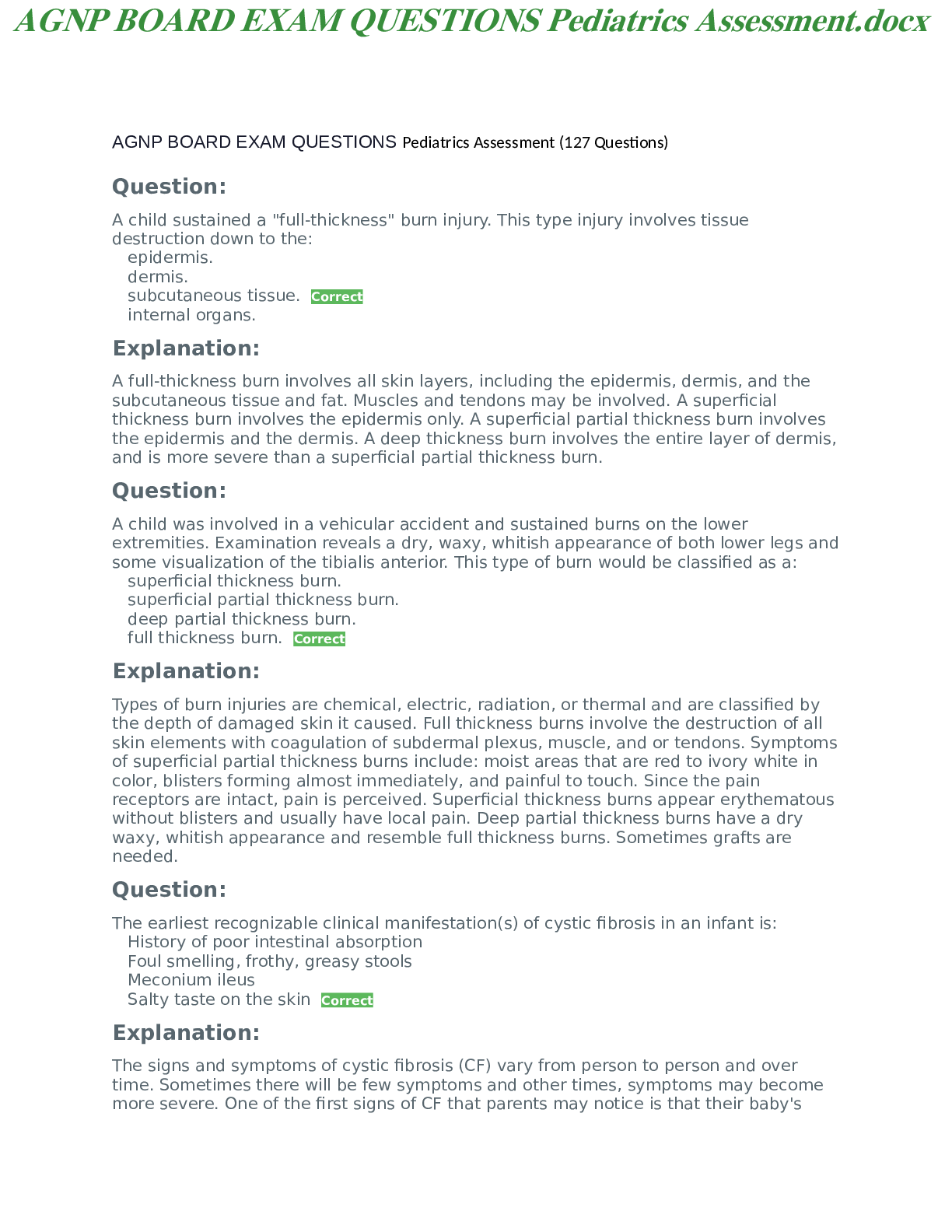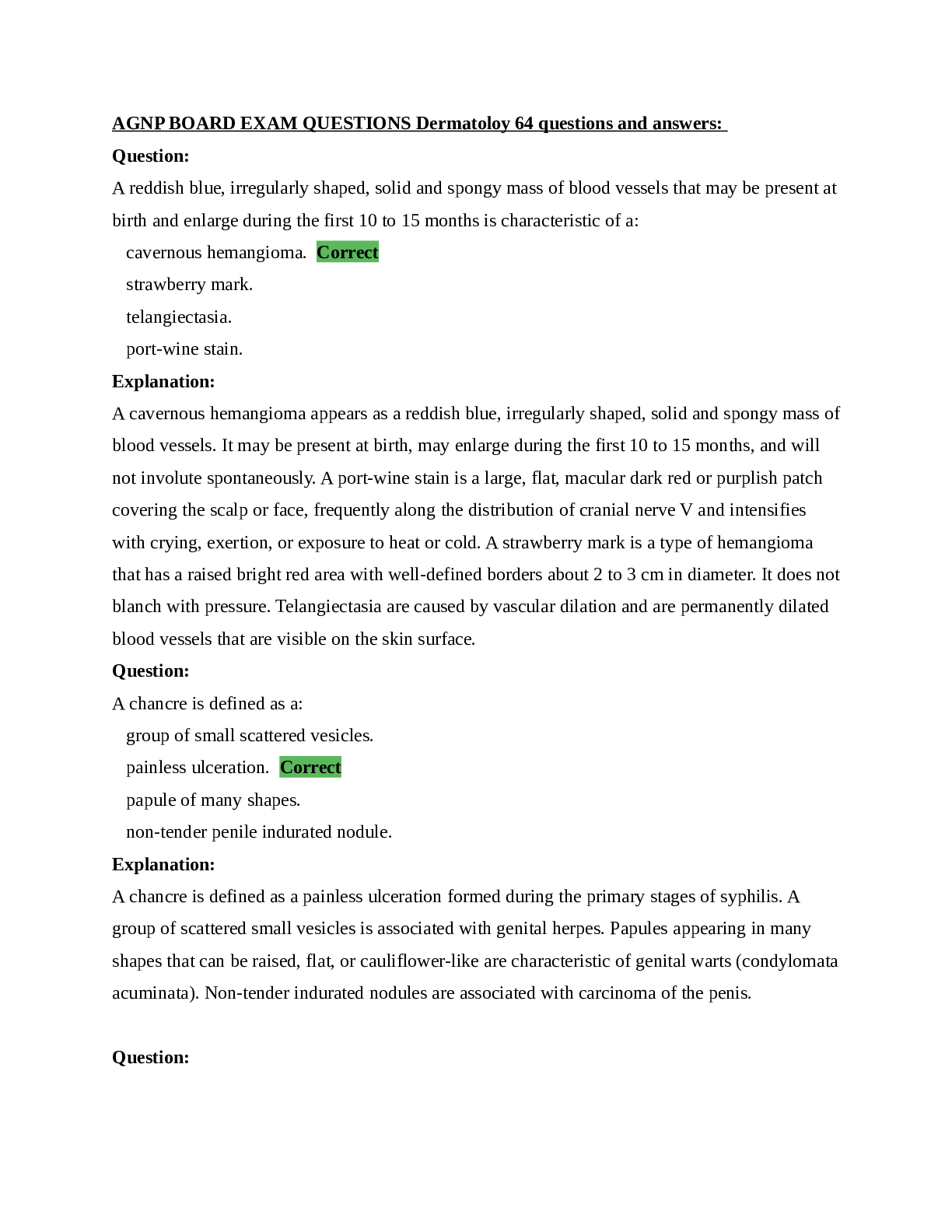*NURSING > EXAM REVIEW > South University, SavannahNSG 6320AGNP BOARD EXAM QUESTIONS Hematology Assessment. (All)
South University, SavannahNSG 6320AGNP BOARD EXAM QUESTIONS Hematology Assessment.
Document Content and Description Below
AGNP BOARD EXAM QUESTIONS Hematology Assessment ( 24 Questions) Question: If a newborn develops a cephalohematoma, the newborn is at an increased risk for: infection. jaundice. Correct caput succ... edaneum. erythema toxicum. Explanation: Cephalohematomas are characterized by bleeding between the bone and the periosteum. Because of breakdown of the red blood cells within a hematoma, the infants are at greater risk for jaundice. They do not increase the risk for infections. Caput succedaneum is an edematous area on the head from pressure against the cervix. Erythema toxicum is a benign rash of unknown cause that consists of blotchy red areas. Question: A twelve-month-old was recently diagnosed with Acquired Immunodeficiency Syndrome (AIDS). The mother asks the nurse practitioner: "How could my child have acquired AIDS?" The best response from the nurse practitioner should be that: "Children under two years of age usually acquire AIDS: by sharing car seats with an HIV infected toddler." because the child may have been sexually abused by someone who was HIV positive." perinatally through an HIV infected mother." Correct through casual contact with an HIV infected individual in a day care center." Explanation: Perinatally is the acquired mode for infants. Children usually over five years of age acquire AIDS through sexual abuse. HIV does not survive in the environment and there is no evidence to date to support the fact That AIDS is acquired through casual contact or by sharing car seats with HIV infected seats. Question: Which ethnicity is associated with glucose-6-phosphate-dehydrogenase (G-6-PD) deficiency? American Indian black Correct Asian Hispanic Explanation: Glucose-6-phosphate-dehydrogenase (G-6-PD) deficiency is a condition in which red blood cells break down when the body is exposed to certain drugs (aspirin, antimalaria drugs) or the stress of infection. G-6-PD is most prevalent in people of Mediterranean and African descent, and specifically common in Saudi Arabian, African, and black patients. [Show More]
Last updated: 1 year ago
Preview 1 out of 8 pages
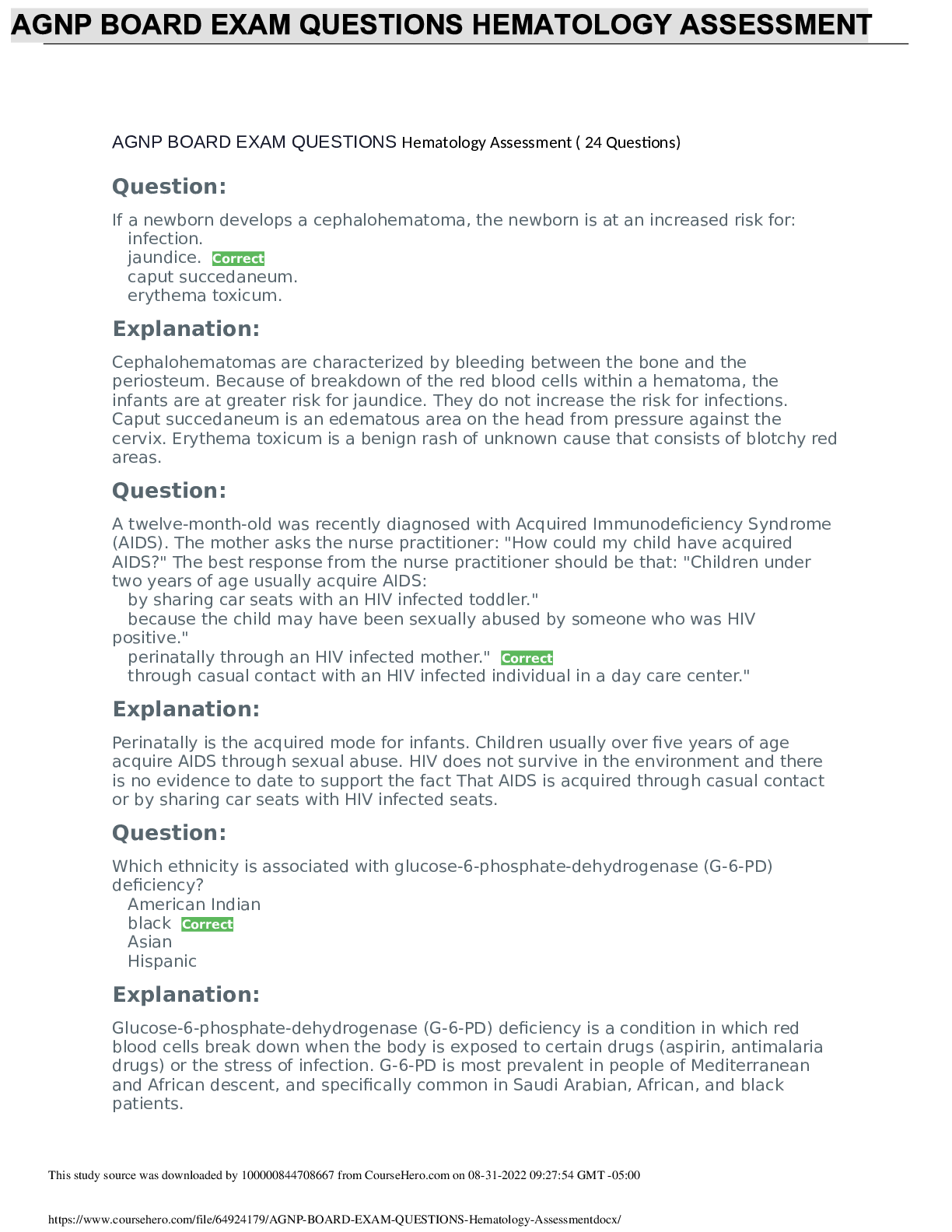
Buy this document to get the full access instantly
Instant Download Access after purchase
Add to cartInstant download
We Accept:

Reviews( 0 )
$18.00
Document information
Connected school, study & course
About the document
Uploaded On
Sep 12, 2021
Number of pages
8
Written in
Additional information
This document has been written for:
Uploaded
Sep 12, 2021
Downloads
0
Views
58

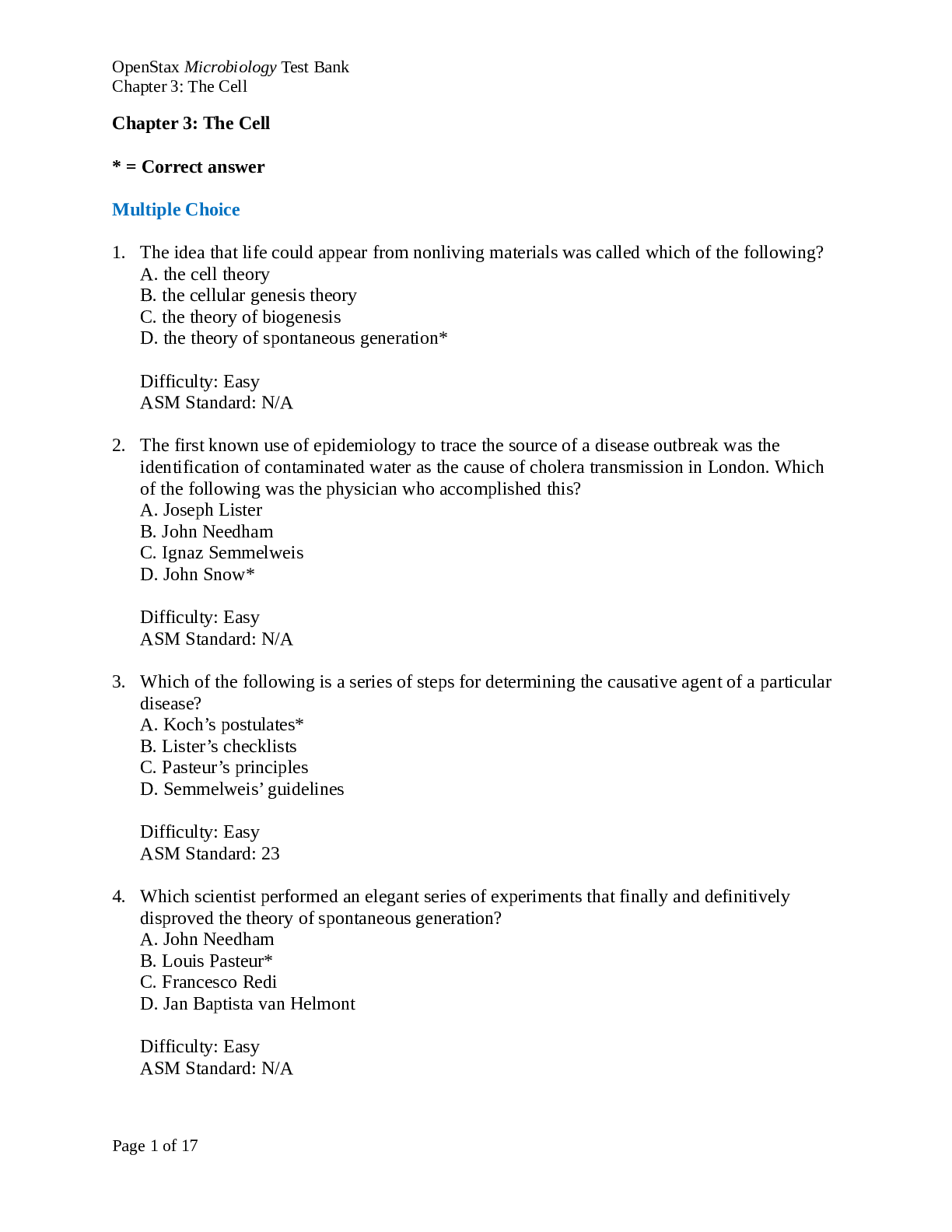
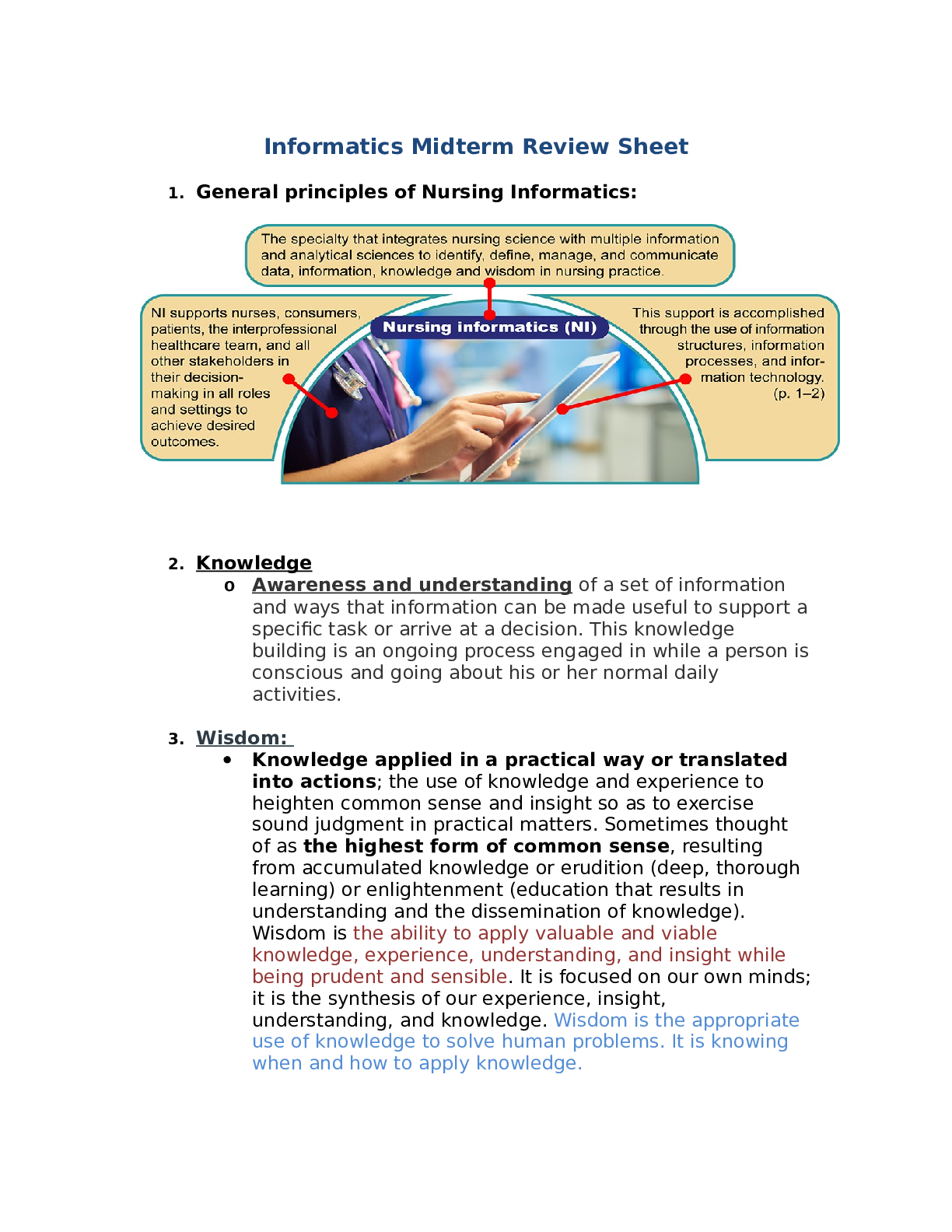
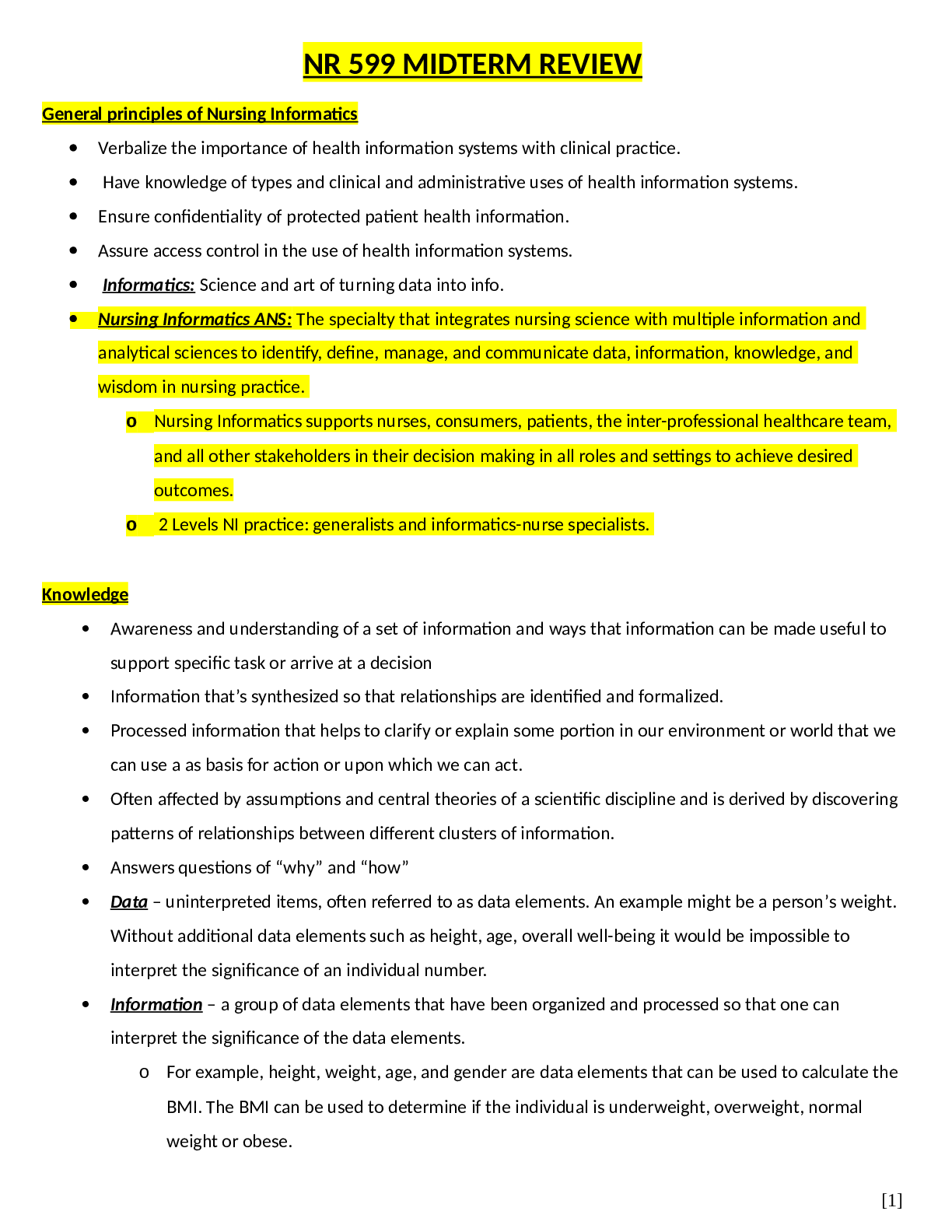
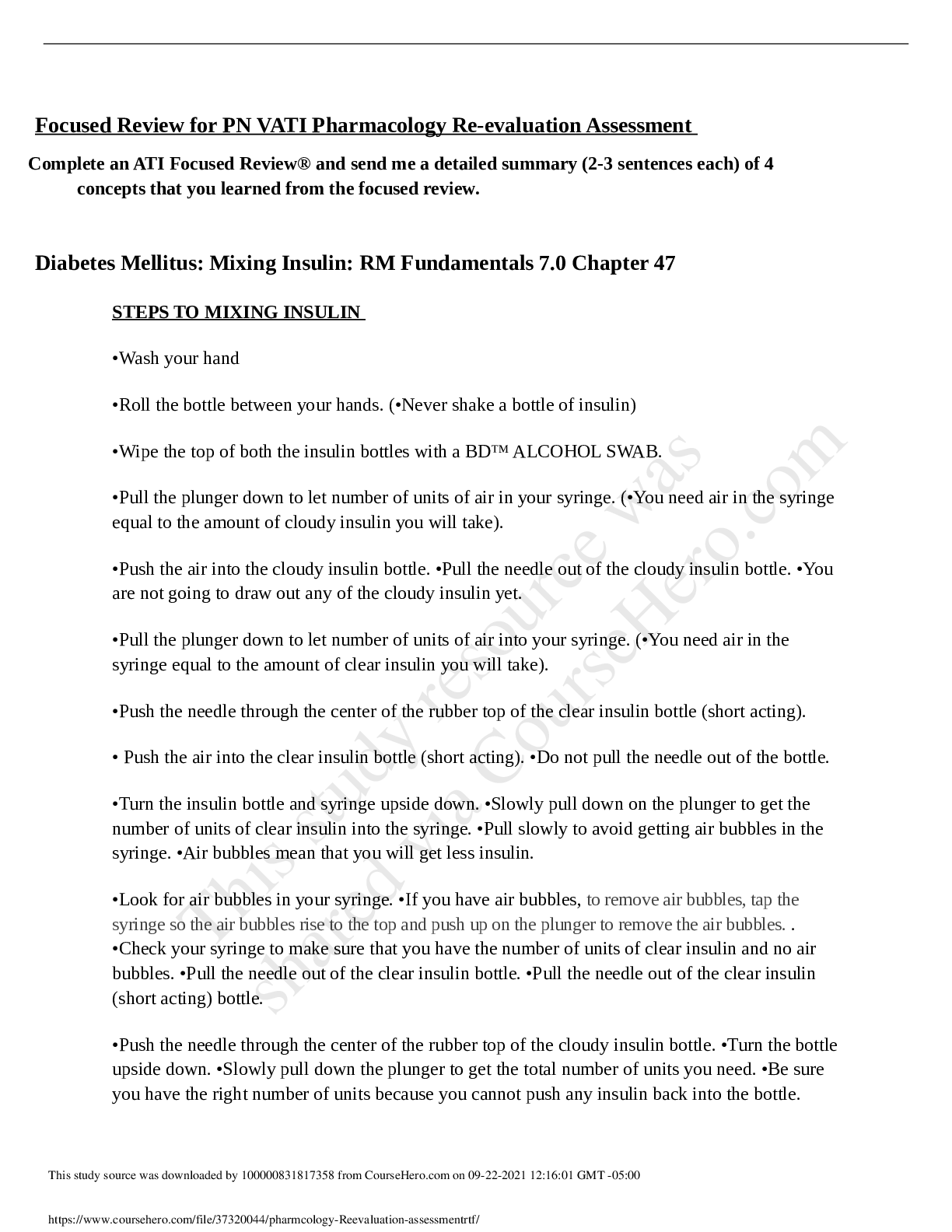
.png)
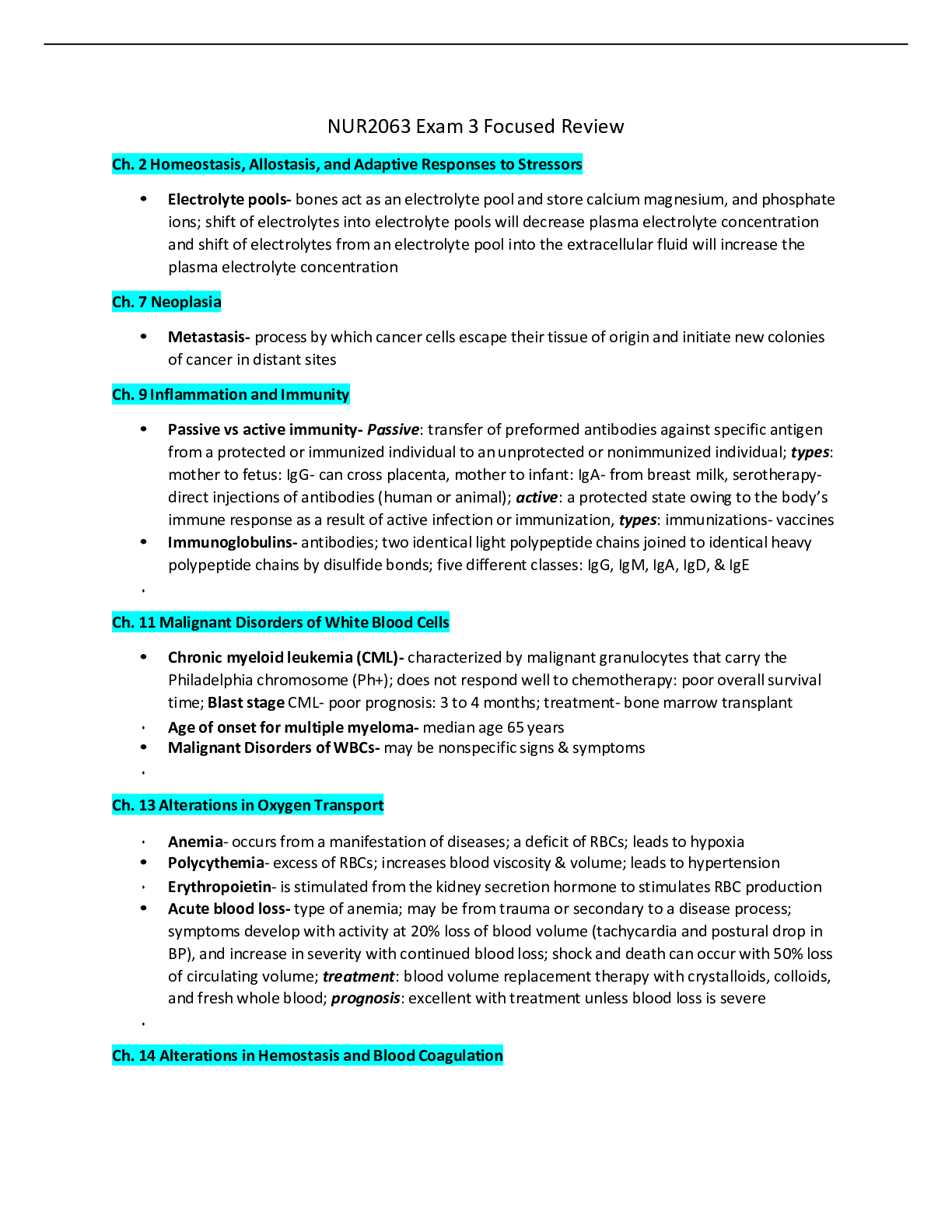
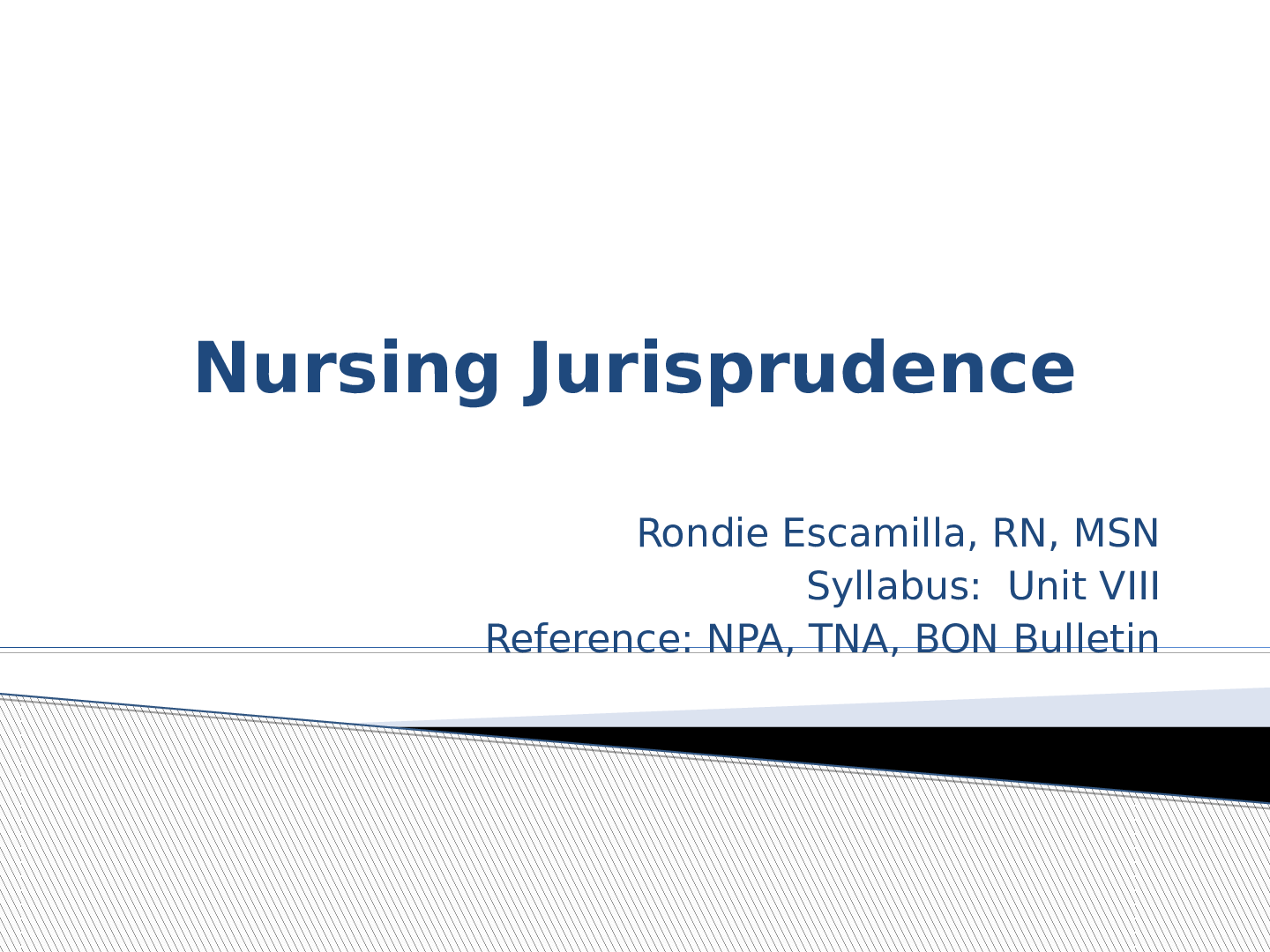
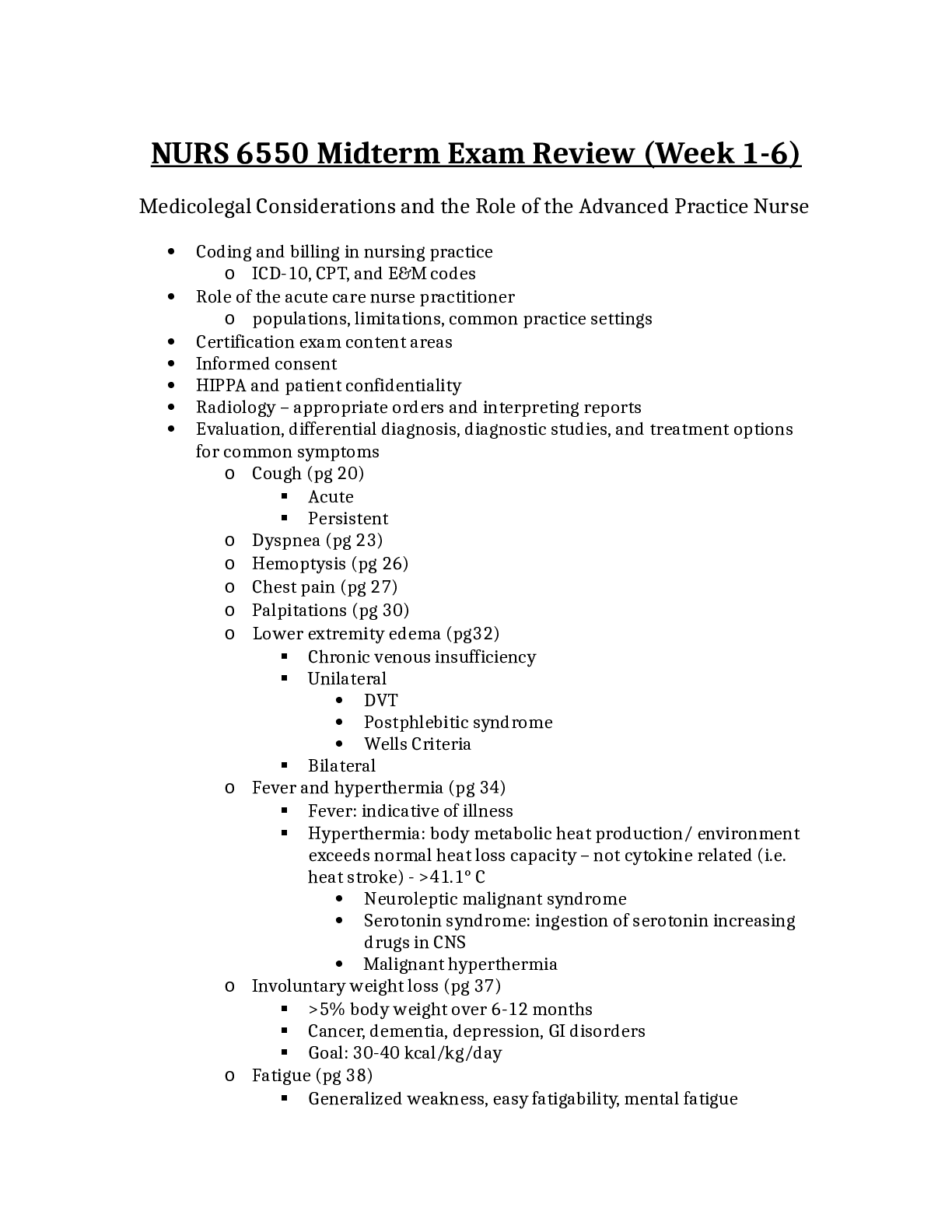
.png)
